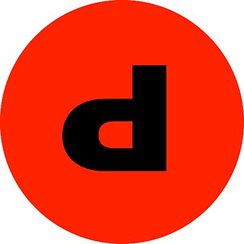Getting banned from Mercari can feel like hitting a brick wall, especially if you've built up a steady stream of sales on the platform. One day you're shipping orders and connecting with buyers, and the next you're locked out of your account with little explanation. Whether you violated a policy you didn't know existed, got flagged for suspicious activity, or simply fell victim to an overzealous automated system, a Mercari ban doesn't have to mean the end of your reselling business.
The reality is that platform bans happen more often than you'd think, and smart sellers know how to protect themselves by diversifying where they sell. In this guide, we'll walk you through why Mercari bans accounts, how to tell if your ban is temporary or permanent, what you can do to appeal it, and most importantly, how to keep your business running without missing a beat by selling on alternative platforms.
Key Takeaways:
- Mercari bans accounts for many reasons, including violations of prohibited item policies, suspicious activity, and verification issues.
- Appeals typically receive a response within 3-4 days, but permanent bans are rarely overturned.
- Crosslisting products to alternative platforms like Poshmark, Depop, eBay, and Facebook allows your business to continue selling despite the ban.
- Each marketplace attracts different buyer demographics, so diversifying increases your sales opportunities.
Why Mercari Bans Accounts
Mercari bans accounts for four main reasons, and understanding them can help you avoid getting banned and prevent repeating the same mistakes on other platforms.
The most common cause of seller bans is listing prohibited items. While there are a lot of items you can sell on Mercari, the marketplace prohibits the sale of FDA-restricted products like vitamins and supplements, counterfeit goods, weapons, alcohol, tobacco, or items you don't physically have in your possession (dropshipping), and even unintentional violation of this policy can trigger an immediate suspension.
Another common reason for bans is acting in a manner that Mercari terms "prohibited conduct" or conducting "prohibited transactions." Prohibited conduct includes having multiple accounts, creating duplicate listings, and posting misleading product information, but can also include seemingly innocuous things like using stock photos in your listings or having a few delayed shipments. The frustrating part is that most of these violations are often accidental, especially among newer sellers.
Aside from policy violations, Mercari often suspends, restricts, or outright bans accounts for what it deems suspicious activity. It divides this into two types of activity: questionable activity and high-risk behavior. Things like high cancellation rates, frequent returns, or chargebacks from your buyers indicates to Mercari that you're likely not a very good seller, and can get you banned due to high-risk behavior. In a similar vein, unusual transaction patterns or other indicators of possible fraudulent activity can flag your account for review. From our experience working with sellers across multiple platforms, it's unfortunately not uncommon for legitimate sellers to get caught in automated fraud detection systems, even when they haven't done anything wrong.
Finally, verification issues can also lead to suspensions and even outright bans for your Mercari account. Mercari is legally required to verify user identities in certain situations, and failing to complete verification when prompted will result in account limitations until you submit the required documentation to reinstate your account.
Understanding Mercari Banned Accounts vs Limited Accounts
While the terms "banned," "restricted," and "suspended" are often used interchangeably, it's important to distinguish between them and understand that not all Mercari account suspensions are created equal. Knowing the difference between a limited account and a banned account can help you not only understand your situation, but also figure out what your next steps should be.
A limited Mercari account means you still have access to your account, but certain features are restricted. You might not be able to list new items, make purchases, or withdraw funds, but you can still view your account, complete pending transactions, and communicate with Mercari support. Limited accounts are typically the result of temporary issues like verification requirements, high cancellation rates, or minor policy violations. In many cases, these limitations can be lifted once you address the underlying issue, though some limitations may result in permanent bans if Mercari ultimately determines that the behavior that triggered the account limitations is too risky or repetitive.
A banned Mercari account, on the other hand, means you've been permanently suspended from the platform. You'll receive a notice about the suspension, and while you'll still be able to complete any pending transactions and request your remaining balance, you won't be able to list or buy items on Mercari anymore. Permanent bans are typically the result of serious violations like selling illegal items, committing fraud, repeatedly violating terms of service, or attempting to circumvent a previous suspension by creating a new account.
How to Appeal Your Mercari Ban
If you believe your Mercari ban was a mistake or resulted from a misunderstanding, you do have options for appealing the decision. While there's no guarantee that your appeal will be successful, especially for permanent bans, it's worth trying if you believe you have a legitimate case.
The first step is to understand why you were banned. Check the notification Mercari sent to your email or in-app message center for details about the suspension. The message should specify whether your account was flagged for prohibited items, prohibited conduct, suspicious activity, or verification issues.
To file an appeal, go to Mercari's help center and submit a contact form regarding your account limitation. In your appeal, be polite and professional, clearly explain your situation, and provide any supporting documentation that proves you didn't violate Mercari's policies. If you were banned for selling a prohibited item that you didn't realize was against the rules, acknowledge the mistake and explain that you've removed the listing and reviewed Mercari's policies to ensure it won't happen again. Unfortunately, if your appeal is denied, Mercari rarely provides additional details or allows for a second appeal, so you'll need to accept the decision and move your business to alternative selling platforms. Furthermore, trying to open a new account to bypass the ban is a violation of Mercari's terms of service in and of itself, and we strongly recommend against it.
.png)
Best Alternative Marketplaces After Getting Mercari Banned
Getting banned from Mercari is never a good feeling, but it's important not to lose sight of the fact that Mercari is far from the only platform you can sell on. In fact, it's just one of many online marketplaces where you can resell items.
If your account has been banned, shifting your focus to alternative selling channels can keep your business running without missing a beat. Below, we'll go over some of the more common alternatives to Mercari, and provide you with a brief overview of each one to help you choose the best fit for your inventory and selling preferences.

Poshmark
Poshmark is one of the most popular alternatives to Mercari, especially for fashion sellers. With over 80 million registered users, Poshmark attracts buyers looking for clothing, shoes, accessories, and home goods. The platform has a strong social component, with features like virtual "Posh Parties" where sellers can share their listings and connect with potential buyers.
Poshmark's fees are steeper than Mercari's, but the platform's active buyer base and emphasis on brand-name fashion mean that sought-after fashion pieces often go for higher prices. Poshmark works particularly well for women's clothing, designer accessories, and athleisure wear, with buyers who tend to be willing to spend more on quality items.

Depop
Depop is another strong alternative to Mercari, especially if you focus on selling vintage clothing, streetwear, or unique fashion items. The platform has a younger, trend-focused audience, with most users falling into the Gen Z and younger millennial demographics. In terms of user experience, Depop's interface feels like a mix between Instagram and a marketplace, with a culture that places heavy emphasis on curated aesthetics and personal branding.
Depop's fees are comparable to Mercari's, though you will have more control over shipping options. The platform works best for sellers who can create visually appealing listings and build a cohesive shop aesthetic. If your items lean more toward everyday basics or mainstream brands, Depop might not be the best fit, but for vintage finds, reworked clothing, and alternative fashion, it's one of the top platforms to consider.

Vinted
Vinted stands out as a seller-friendly alternative with a unique fee structure. Unlike Mercari and most other platforms, Vinted charges zero seller fees, meaning you keep 100% of your sale price. Instead of charging seller fees, Vinted charges buyers a small transaction protection fee. As a seller, this not only saves you a lot on selling costs, but makes it easier to work out your pricing strategy.
As a marketplace, Vinted focuses primarily on secondhand clothing, shoes, accessories, and home goods, with a strong presence in Europe and growing popularity in the United States. Vinted works best for sellers who want to maximize their profits on everyday fashion items and basics. The marketplace offers sellers a simple listing process and provides prepaid shipping labels to make fulfillment easy.

Grailed
If you're selling menswear, streetwear, or high-end designer fashion, Grailed is a great alternative if you've been hit with a ban on Mercari. With over 10 million users, Grailed attracts buyers who are specifically looking for pieces from sought-after brands like Supreme, Gucci, Saint Laurent, and Rick Owens.
Grailed's selling fees are comparable to Mercari's at 9% per sale, and the platform's focus on authentication and curated marketplace means you can often command premium prices for quality pieces. Buyers on Grailed expect to pay more for rare and authentic items, making it ideal for higher-value inventory. The platform works particularly well for limited-edition streetwear, designer menswear, vintage fashion, and collectible sneakers, with buyers who know exactly what they're looking for and are willing to pay for it.
.png)
Keep Your Business Running with Crosslisting
There is a silver lining to getting banned on Mercari, and it's the age-old lesson every ecommerce business owner must learn: relying on a single selling platform puts your entire business at risk. The solution? Diversification through crosslisting. Listing your items across multiple marketplaces diversifies your income streams and protects against account bans, suspensions, or any other issues that can suddenly tank your sales.
In our experience, crosslisting is one of the most effective strategies for building a resilient reselling business that also has immense potential for growth. But multichannel selling has another, no less important benefit – it gives you access to a wider range of buyers with different shopping preferences. While Mercari typically attracts budget-conscious shoppers looking for everyday items, Poshmark draws buyers interested in fashion and brand names, Depop appeals to trend-focused younger shoppers, and Grailed reaches high-end fashion enthusiasts, all of which you would miss out on if you kept your ecommerce business confined to Mercari alone.
The challenge with crosslisting is that manually creating and managing listings across multiple platforms is incredibly time-consuming. This is where crosslisting tools like ExportYourStore come in – they make it simple to crosslist your Mercari items to multiple marketplaces at once with just a few clicks. ExportYourStore lets you crosslist from Mercari to 15+ sales channels, including other marketplaces, shopping cart platforms, and even social media channels. You'll be able to create custom rules to determine how your products crosslist, and automate optimizations to get the most out of every product listing.
Getting banned from Mercari is frustrating, but it doesn't have to derail your reselling business. By understanding why bans happen, knowing how to appeal if appropriate, and diversifying your business by selling on multiple platforms, you can keep your income flowing and build a stronger, more resilient business. The key is to never put all your eggs in one basket, and to use tools like ExportYourStore that make managing multiple selling channels as simple as selling on one.
.png)
%20(1).png)















%20(1).png)
.png)
